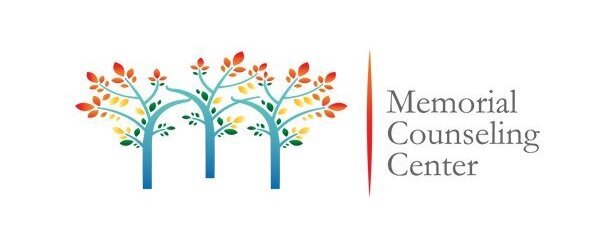Grief/Loss & Bereavement Counseling
Are you overcome by a loss or losses that you just can’t shake? Losses can turn your world upside down and make it hard to cope. 2020 was a year that met with grief/loss. We still feel the aftershocks of loss.
Has your loss left you feeling uncertain about how to move through your days? Are you tired of fighting off the sadness, or of just being numb? Does it feel as though your friends and family expect you to just move on, but you are stuck? Sometimes it feels as though people quit talking to you about your loss because they just don’t know what to say or have run out of suggestions. And still…the pain just seems to come out of nowhere and coping with loss is hard.
Losses can occur from a wide range of life experiences. These include but are not limited to:
Loss related to CoVid-19 Pandemic—loss of a loved one being impacted by CoVid-19, being unable to socialize and connect with friends and loved ones, changes related to pandemic in work and home life, loss of freedom, loss of sense of safety, etc.
Loss of relationship and connection resulting from death, divorce, infidelity, or estrangement;
Loss of the family unit as young adult children or other family members go away to college or leave home for a job and gain their independence;
Loss of a pet;
Loss of a job, income or other means of financial support;
Loss of the family home or of a community with which you have been associated; and
Loss of an anticipated future or other expectations.
With loss comes grief and grief is a process that can be both uncomfortable and distressing. You may not know what it means to grieve or how to get the support you need as you experience the impact of your loss or losses.
Grief is not a disorder, a disease or a sign of weakness.
It is an emotional, physical and spirituality necessity, the price you pay for love [and belonging].
The only cure for grief is to grieve.
-Earl Grollman
As you go through the process of grieving, life will change. The sadness and fear will lessen and once again you’ll find reasons to live your life. Working with a grief counselor can help you learn to cope with your life after the loss.
Everyone deals with grief at one time or another.
To be human is to experience loss – everyone has losses. It’s normal to feel a wide range of emotions from sadness and despair to anger and guilt to loneliness and feelings of worthlessness. Other common experiences of grief include fatigue, difficulty concentrating, sleep and eating changes, and the desire to withdraw from others. While each individual has his or her own unique way of grieving, it’s common to experience initial shock or numbness to get through the practical demands that follow a loss.
A grief counselor can help you recognize what normal reactions to grief are given the nature of your loss, your past losses, and other factors in your life. Whether you are coping with the loss of a loved one, the death of a parent or other significant person in your life, or another type of loss altogether, we can assist you in working through your grief and adapting your life accordingly.
Coping with loss or coping with grief that results from loss can be difficult.
Three challenges occur during the grieving process. First of all, not all losses are equal. Losses can be small or they can be large. Some losses disrupt life very little and are easy to cope with, while others shake the very foundation of your life. A loss may be complicated by secondary losses that accompany the primary loss or by the reemergence of grief associated with past losses.
Second, each person processes grief in a unique way, so there is no one-size-fits-all road map for resolving grief. How you process grief depends on your personality; the nature of the relationship you had with the lost person, pet, or circumstance; other losses you’ve had in your life and how well you grieved them; your ability to experience and resolve emotions; the nature and strength of your support system; and your ability to practice healthy self-care. Well-meaning friends and family members may be at a loss as to how to support you and their good intentions may not be adequate.
Third, the grief process cannot be pushed aside so that you can get on with your life. You need to move through grief, painful feelings and all, or it will negatively impact and hinder your life.
Our counselors care about helping you. We provide a safe, accepting, and compassionate space to help you meet your goal of minimizing your grief and living your life more fully. As we get to know your loss history and who you are as a person, we’ll tailor treatment to fit you and your circumstances. Some of the ways we will help you include: educating you about grief; guiding you to recognize, express, and process the emotions that are related to the loss; teaching you strategies for self-care; affirming normal grief reactions you may be experiencing; and, helping you to create ways to adapt your life to the loss.
We also recognize that, at times, it’s helpful for you to participate in a grief support group and we can recommend those, as needed.
Grief is in two parts. The first is loss. The second is the remaking of life.
-Anne Roiphe
How do I get help?
To begin couples counseling, there are a number of ways in which you can contact us: call us at 713-483-5879, email us at info@memorialcounselingcenter.com, or complete the Contact Us form.

